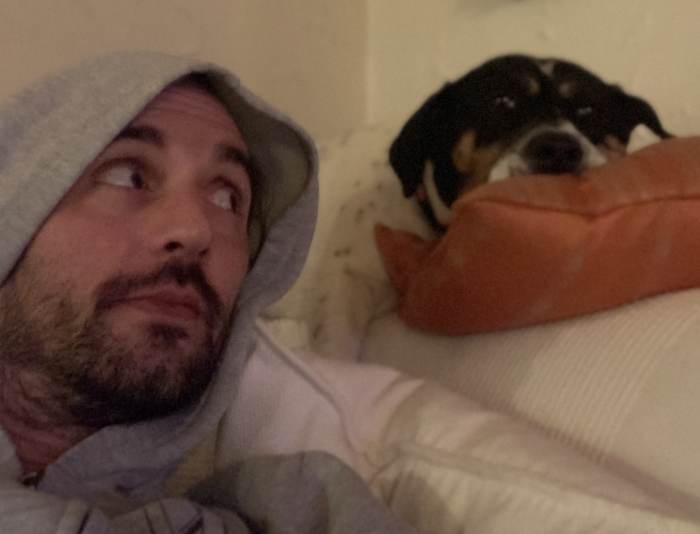Dear social justice warriors, I see you. I feel your pain.
It’s easy to get upset about the state of the world these days.
Just as we thought that the pandemic was over, we still see friends and loved ones catching the virus. Many of us expected politics to become less agitating after Trump was voted out of office, but here we are arguing about abortion laws. And let’s not forget about the ongoing war in Ukraine.
And climate change.
And animal rights.
And Brittney Griner is still in a Russian detention center.
And what about inflation?
So many good reasons to take action. So many things we would like to change.
But what about us? What about our mental health after two years of a pandemic? It’s hard to deny that many of us struggled while working at home, not seeing friends, and feeling isolated.
There is no doubt that this pandemic caused wounds on several levels we need to heal—and this won’t happen overnight. Many of us feel depleted, sad, and confused.
At the same time, there are all these issues that get our blood boiling. But maybe our anger also gets triggered easily because of our current state of being?
And again, activism is a great thing—just like relationships.
Speaking of relationships, you might have heard the advice that we can’t pour from an empty cup in a relationship. Most of us won’t disagree that we aren’t able to fully show up for someone if we aren’t able to show up for ourselves.
Maybe that also applies to activism?
What happens if we keep giving in a relationship without receiving anything in return? Right, we might get angry and start thinking about ending the relationship.
Maybe that also applies to our relationship with activism?
There is nothing more frustrating than taking action without seeing any results of our efforts. This can happen in relationships, but it’s almost bound to happen if we are social justice warriors.
It’s not that our actions don’t matter; it’s just that we are dealing with problems that have piled up for decades. It’s not that we just found out about the climate crisis. It’s not the first time religious folks have tried to challenge abortion rights. Homophobia, sexism, and toxic masculinity were not invented last week.
And there are lovely people who have tried to make a difference for decades. If you are frustrated about the state of our society as a 30-year-old, then imagine how frustrated a hippie feels who has already protested all this sh*t since the 60s.
But many of these old-school hippies aren’t even half as frustrated as activists my age.
We could blame social media, which is usually not too far-fetched. But we could also take a deep breath and ask ourselves, “How am I doing right now?”
Besides all the things that we want and need to care about, we shouldn’t forget one of the most basic relationship bits of advice—as mentioned in the title: you can’t pour from an empty cup.
If this is true in relationships, why would we expect it to be any different when it comes to activism?
Just as we tend to project our sadness after getting rejected by the opposite gender, we also run danger of developing the same blind rage toward politicians, celebrities, and our coworkers.
The feeling of not being able to change things we don’t want to accept almost automatically leads us to something I call “depressed Nihilism.”
Depressed Nihilism takes over when we tried to pour from an empty cup for too long. It is the consequence of losing our hope to make this world a better place. It manifests in statements like, “The world is full of idiots who don’t care enough.”
But is that actually the case? Do we even know these people? Maybe they already tried, gave up, and focused on other things? Maybe they never cared. And who knows, maybe our assessment isn’t even wrong at all?
But does it change anything besides our mood?
Is it our job or duty to save humanity? Is it our job to judge others?
Please don’t get me wrong. The world needs activism. But if we are struggling with mental health, we might not be as helpful as we would like to think.
Wait, what?
Let’s say we are constantly angry at our partner and ask ourselves if that is a good place to start a conversation about our relationship dynamics.
Why do we expect a different outcome when it comes to activism?
Blind rage never changed anyone’s opinion. But I see a lot of blind rages. I am part of this myself.
And maybe that needs to change?
Maybe it’s time to take a deep breath and a step back?
That doesn’t mean that we shouldn’t care about the environment and society. All I am saying is that our state of being also determines our ability to convince others and create the change we want to see in this world.
Dear social justice warriors, I feel your anger. I am with you.
But please don’t forget to take care of yourself.
You can’t pour from an empty cup.
There is no shame in taking a break.
It’s not selfish to take care of ourselves; it’s a service to everyone around us and our mission.
The most influential activist is the one who inspires others and offers hope—and a depressed Nihilist might be the exact opposite of that.
 Share on bsky
Share on bsky


Read 7 comments and reply